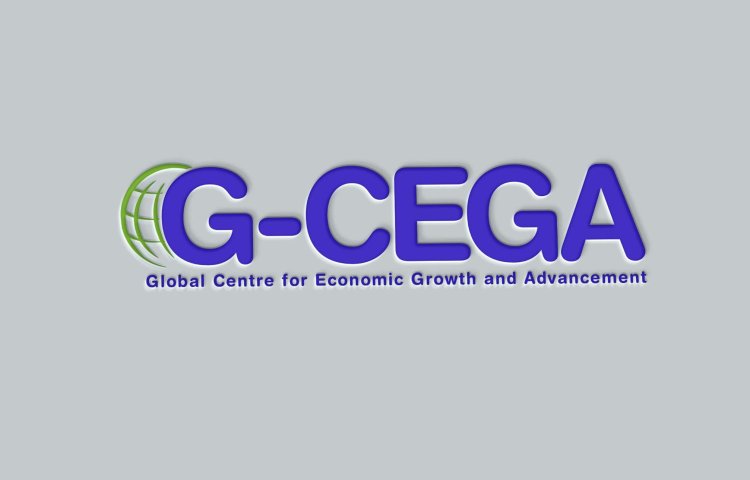BRINGING 700 MILLION PEOPLE OUT OF POVERTY
How Cryptocurrency Can Be Used to End Global Poverty.

Global poverty remains one of the most intractable challenges facing humanity today. Despite decades of international aid and development initiatives, more than 700 million people still live on less than $1.90 a day, according to the World Bank. Traditional solutions, including foreign aid and microfinance, have had limited success in eradicating poverty at a global scale. However, a revolutionary new tool is emerging that has the potential to address some of the root causes of poverty: cryptocurrency.
Cryptocurrency, a form of digital currency that operates on decentralized blockchain technology, has quickly become a powerful tool in the global financial ecosystem. With its potential to bypass traditional banking systems, lower transaction costs, and provide unprecedented access to financial services, cryptocurrency is increasingly seen as a way to address some of the systemic issues that keep people in poverty. In this article, we explore how cryptocurrency can help lift millions out of poverty and provide a more equitable future for the global population.
"For millions of people in poverty-stricken areas, cryptocurrency can serve as a gateway to the global economy".
Financial Inclusion: A Gateway to Economic Empowerment
One of the primary barriers that keep people in poverty is the lack of access to basic financial services. According to the World Bank, approximately 1.7 billion adults globally are "unbanked," meaning they do not have access to essential financial tools like savings accounts, loans, or credit. This lack of access severely limits their ability to touch or retain wealth, start businesses, or even protect themselves against emergencies. The unbanked population primarily resides in developing countries, where infrastructure and access to banking institutions are limited.
Cryptocurrency offers an innovative solution by providing financial access to anyone with a smartphone and an internet connection. Unlike traditional financial systems that rely on centralized institutions such as banks, cryptocurrencies like Bitcoin, Ethereum, and others are decentralized. This means people can create digital wallets, send and receive money, and even store value without the need for a traditional banking relationship. This is particularly valuable in rural areas or conflict zones, where banking infrastructure is either insufficient or non-existent.
For millions of people in poverty-stricken areas, cryptocurrency can serve as a gateway to the global economy. People who would otherwise be excluded from the financial system can participate in global trade, receive remittances, and store wealth in a secure and transparent way. By offering financial access without the traditional barriers of physical banks, cryptocurrency can serve as a crucial tool in the fight against global poverty.
Low-Cost Transactions: Breaking the Cycle of Expensive Remittances
Another key issue for people living in poverty is the high cost of sending and receiving money, particularly in developing countries. In many regions, remittances sent by migrant workers are a vital source of income for families. However, the cost of transferring money through traditional remittance services like Western Union can be prohibitively high, often consuming up to 10% or more of the transferred amount in fees.
Cryptocurrency significantly reduces these transaction costs, making it easier for people in developing countries to receive money from abroad or send payments within their own country. For example, Bitcoin transactions generally have lower fees than traditional bank transfers or money transfer services, and they can be completed in a matter of minutes, without relying on third-party intermediaries.
This is especially important in the context of developing nations where remittances contribute significantly to household income. By reducing the cost of sending money, cryptocurrency ensures that more funds reach the people who need them most. This financial relief can enable families to invest in health, education, and business development, providing a crucial lifeline that breaks the cycle of poverty.
Empowering Entrepreneurs: Unlocking New Opportunities
Entrepreneurship plays a key role in combating poverty, as it provides individuals with the opportunity to create jobs, generate income, and build wealth. However, in many developing countries, aspiring entrepreneurs face significant barriers to starting or growing their businesses. These include limited access to capital, lack of collateral for loans, and bureaucratic hurdles imposed by centralized financial institutions.
Cryptocurrency has the potential to change the game for entrepreneurs in low-income areas. Through decentralized finance (DeFi) platforms, individuals can access microloans, crowdfund projects, or raise capital through token sales without needing to rely on traditional banks or government institutions. Decentralized platforms allow entrepreneurs to raise funds directly from investors around the world, removing barriers to financing and providing access to capital even for those without a formal credit history.
In addition, cryptocurrency enables individuals to engage in global commerce more easily. For instance, an entrepreneur in a rural village could sell their goods online and receive payments in cryptocurrency, avoiding the high costs and long processing times associated with traditional international payment systems. This opens up new markets for small businesses and enables them to access a global customer base, providing a significant economic boost.
Education and Skill Development: A Bridge to Better Opportunities
Education is often cited as the most powerful tool for lifting individuals out of poverty. However, access to quality education remains limited in many parts of the world, particularly in underserved and rural areas. This lack of access to education perpetuates cycles of poverty, as individuals are unable to acquire the skills needed to secure better-paying jobs or start their own businesses.
Blockchain technology, which underpins most cryptocurrencies, offers an innovative solution to this problem. Blockchain can be used to create decentralized educational platforms, where students in developing countries can access free or low-cost online courses and certifications. These platforms can also reward learners with cryptocurrency tokens for completing lessons or passing exams, incentivizing education and skill development.
Furthermore, blockchain technology can provide a way to verify and track educational achievements in a transparent and immutable manner. This helps eliminate fraud in academic credentials, making it easier for individuals in developing countries to demonstrate their qualifications and secure jobs, both locally and globally. Blockchain-based education systems could create new opportunities for millions of people, helping to break the generational cycle of poverty.
Transparency and Fighting Corruption: Restoring Trust in Aid
Corruption remains a significant obstacle to poverty alleviation. In many developing countries, corruption diverts resources that should be used for social programs like healthcare, education, and infrastructure development. As a result, billions of dollars in aid and government funding never reach the people who need it most.
Blockchain’s transparency and immutability make it an ideal tool for fighting corruption. Because every transaction on a blockchain is recorded in a public ledger, it is nearly impossible to alter or hide fraudulent activity. Governments, NGOs, and organizations distributing aid can use blockchain technology to ensure that resources are allocated efficiently and transparently. For example, blockchain could be used to track donations, making sure that funds go directly to their intended recipients, without being siphoned off by corrupt officials.
In addition, cryptocurrencies can be used to disburse government benefits or international aid directly to recipients, bypassing corrupt intermediaries. This level of transparency would help build trust in the system and ensure that resources are used effectively, providing a more direct route to poverty alleviation.
The Road Ahead: Overcoming Challenges and Building a More Inclusive Future
While cryptocurrency has the potential to bring significant benefits to those living in poverty, it is important to acknowledge the challenges that still exist. The volatility of many cryptocurrencies, regulatory uncertainty, and a lack of financial literacy in some communities may hinder widespread adoption. Additionally, digital access remains a barrier in some regions, with many individuals still lacking reliable internet or smartphones.
To harness the full potential of cryptocurrency in ending global poverty, it will require a coordinated effort from governments, international organizations, technology developers, and local communities. This includes creating infrastructure to support cryptocurrency adoption, developing educational programs to promote financial literacy, and establishing regulatory frameworks that ensure the safe and equitable use of digital currencies.
Conclusion: A New Era of Economic Opportunity
Cryptocurrency offers a transformative opportunity to address some of the fundamental causes of global poverty. By providing financial inclusion, reducing transaction costs, empowering entrepreneurs, and increasing transparency, cryptocurrency can help bring millions of people out of poverty and create a more equitable global economy. While challenges remain, the potential of cryptocurrency to disrupt traditional systems and empower the underserved is undeniable.
If harnessed properly, cryptocurrency could become a key tool in the fight against poverty, helping to create a world where everyone, regardless of their background or geographic location, has the opportunity to thrive.












